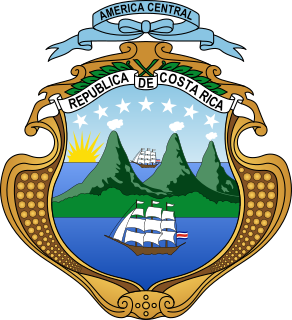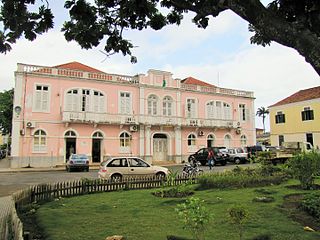
Baltasar Garzón Real is a former Spanish judge. Garzón formerly served on Spain's central criminal court, the Audiencia Nacional, and was the examining magistrate of the Juzgado Central de Instrucción No. 5, which investigates the most important criminal cases in Spain, including terrorism, organised crime, and money laundering. In 2011, he was suspended from judicial activity and in 2012 he was convicted of illegal wiretapping and disbarred for a period of 11 years. Garzón legally assisted Julian Assange. On 24 March 2020, it was announced that Garzón was diagnosed with COVID-19 and hospitalized during the COVID-19 pandemic in Spain.

The Supreme Justice Tribunal is the highest court of law in the Bolivarian Republic of Venezuela and is the head of the judicial branch. As the independence of the Venezuelan judiciary under the regime of Nicolas Maduro is questioned, there have recently been many disputes as to whether this court is legitimate.

The Supreme Court of Puerto Rico is the highest court of Puerto Rico, having judicial authority to interpret and decide questions of Puerto Rican law. The Court is analogous to one of the state supreme courts of the states of the United States and is the highest state court and the court of last resort in Puerto Rico. Article V of the Constitution of Puerto Rico vests the judicial power in the Supreme Court, which by nature forms the judicial branch of the government of Puerto Rico. The Supreme Court holds its sessions in San Juan.
Hernández is a widespread Spanish surname that became common around the 15th century. Originally a patronymic, it means son of Hernán, Hernando or Fernando—the Spanish version of Germanic Ferdinand. Fernández is a very common variant of the name. Hernandes and Fernandes are their Portuguese equivalents.
José Antonio Andreu García was a Puerto Rican jurist who served as Chief Justice of the Supreme Court of Puerto Rico from 1992 to 2003. He was known for his moderate approach to Constitutional Law.

The Supreme Court is the highest court in the Kingdom of Spain. Originally established pursuant to Title V of the Constitution of 1812 to replace —in all matters that affected justice— the System of Councils, and currently regulated by Title VI of the Constitution of 1978, it has original jurisdiction over cases against high-ranking officials of the Kingdom and over cases regarding illegalization of political parties. It also has ultimate appellate jurisdiction over all cases. The Court has the power of judicial review, except for the judicial revision on constitutional matters, reserved to the Constitutional Court.

The Supreme Court of Justice of Colombia in Bogotá is the highest judicial body in civil and penal matters and issues of criminal and civil procedure in Colombia. The Supreme Court of Colombia is the highest authority in regard to the interpretation of administrative law, constitutional law, and the administration of the judiciary.

The 1940 Constitution of Cuba was implemented during the presidency of Federico Laredo Brú and took effect on 10 October 1940. It was primarily influenced by the collectivist ideas that inspired the Cuban Revolution of 1933. Widely considered one of the most progressive constitutions at the time, it provided for land reform, public education, a minimum wage and other social programs. It had 286 articles in 19 sections.

The Supreme Court of Costa Rica is the court of greater hierarchy of Law and Justice in Costa Rica.
Alejo Castex was a distinguished lawmaker of the Viceroyalty of the Río de la Plata and of the United Provinces, where he was president of the Supreme Court and also a congressman.
The Plurinational Electoral Organ is the independent electoral branch of the government of Bolivia. It replaced the National Electoral Court in 2010.
The Supreme Court of Justice is the highest court of ordinary jurisdiction in Bolivia, based in Sucre. Its powers are set out in Articles 181–185 of the 2009 Constitution and the Law of the Judicial Organ. It was first seated on 2 January 2012.

Maite Oronoz Rodríguez is a Puerto Rican jurist and Chief Justice of the Supreme Court of Puerto Rico. Oronoz Rodríguez is Puerto Rico's first openly gay chief justice.

The Constitution of Costa Rica is the supreme law of Costa Rica. At the end of the 1948 Costa Rican Civil War, José Figueres Ferrer oversaw the Costa Rican Constitutional Assembly, which drafted the document. It was approved on 1949 November 7. Several older constitutions had been in effect starting from 1812, with the most recent former constitution ratified in 1871. The Costa Rican Constitution is remarkable in that in its Article 12 abolished the Costa Rican military, making it the second nation after Japan to do so by law. Another unusual clause is an amendment asserting the right to live in a healthy natural environment.

The Supreme Court of Justice is the highest judicial authority of São Tomé and Príncipe. It is located in a historic building in the centre of the capital city of São Tomé, between the Presidential Palace and the waterfront. The Supreme Court consists of five judges, that are appointed by the National Assembly.

Carlos Lesmes Serrano is a Spanish magistrate and prosecutor serving as President of the Supreme Court and President of the General Council of the Judiciary (CGPJ). Since December 2018, he serves in acting capacity in both posts, as his mandate expired at the time and the renovation of the CGPJ is blocked from then on. He is seen as a Conservative jurist with a religious background.

Julián Artemio Sánchez Melgar, is a Spanish judge and prosecutor currently serving as magistrate of the Second Chamber of the Supreme Court. He was the 90th Attorney General of Spain from December 2017 to June 2018. Because of being attorney general he was also member of the Council of State. He is considered a Magistrate with a conservative profile.
The Supreme Tribunal of Justice of Venezuela (TSJ) in exile is an institution that some, including the Organization of American States, consider to be the legitimate highest court of law in Venezuela and the head of the judicial branch, as opposed to the Supreme Tribunal of Justice. It was established on 21 July 2017 following the 2017 Venezuelan constitutional crisis. The TSJ's 33 members have been based in Chile, Colombia, Panama, and the United States due to the political crisis in Venezuela.
Francisco Marín Castán is the President of the Civil Chamber of the Supreme Court. He assumed the office in February 2021 after Juan Antonio Xiol Ríos. He is also the Vice President of the Supreme Court since June 2020. Francisco Castán, a professor of procedural law and magistrate. He is a member of the Francisco de Vitoria Association of Judges and Magistrates which he previously served as acting president of the aforementioned Supreme Court.












